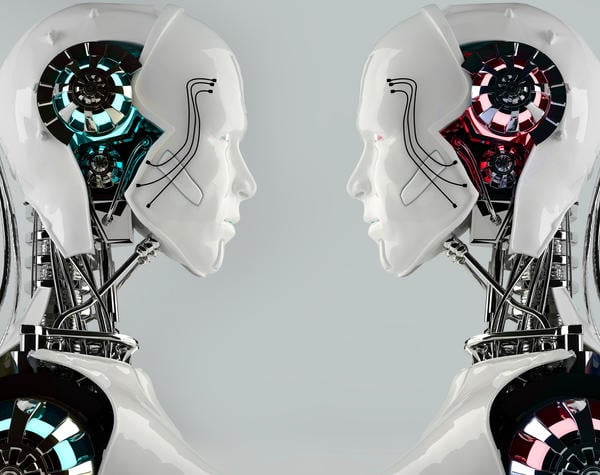With artificial intelligence (AI) estimated to contribute up to $15.7 trillion to the global economy by 2030, it's fast becoming the cornerstone to technological progress across industries.
92% of fortune 1000 executives surveyed in the US are reporting an accelerating pace of investment into big data and AI. This means careers in AI are thriving everywhere from healthcare, to retail, to financial services, to transport and logistics, impacting the way we socialise, communicate, organise, search, and travel. And it’s only continuing to advance.
Deakin’s Dr Thanh Thi Nguyen, Senior Lecturer in Information Technology (AI), and Dr Glory Lee, Lecturer in Computer Science, share some of the exciting trends and careers evolving in the industry.
Jobs in artificial intelligence are everywhere
As Dr Lee explains, businesses and organisations are increasingly recognising how the logical and mathematical analysis of AI can be harnessed to optimise business growth and operations.
AI-based decisions are able to transform businesses by reducing business costs, streamlining operations, and accelerating business growth with innovation.
‘More and more companies would need help from AI talent to not only build up the technological environment, but also to maintain and develop a robust business system for the business growth in all aspects,’ Dr Lee says.
And as Dr Nguyen adds, these growing opportunities can be found in a range of industries.
‘In many areas such as self-driving cars, robotic assistants, smart cities, manufacturing, energy, healthcare, medicine, digital marketing, finance, cybersecurity, retail, supply chain, and agriculture, AI technologies are becoming the source of strength and competitive advantage of many companies,’ Dr Nguyen says.
It can be particularly advantageous if you’re looking to study AI and/or transition from another field. As Dr Nguyen explains, you can combine your studies with your existing skill set to choose from roles as an AI researcher, AI engineer, machine learning engineer, robotics engineer, autonomous systems engineer, computer vision engineer, software engineer, data engineer, data analyst, data scientist, or business intelligence developer.
Additionally, the widespread adoption of AI across various industries means options for newcomers are becoming more flexible and varied, changing the way they enter the industry.
‘With more and more intuitive tools helping to lower the entry barrier for newcomers to AI, I'm excited to see a more diverse development in the field,’ Dr Lee says.
What it takes to become an artificial intelligence specialist
The process behind teaching systems to simulate the human ability to problem-solve and communicate can be a very complex job that requires a lot of patience and persistence.
‘To most people, AI may sound like a magical black box that can solve complex problems autonomously. In reality, training an AI system is like raising a kid, both require a lot of attention,’ Dr Lee says.
‘AI requires system developers to carefully select the proper data for training, and it involves a lot of advanced mathematics in controlling and fine-tuning its learning process.’
‘Being able to problem-solve, think critically, analyse, communicate, collaborate, and hold attention to detail are some of the critical skills required within the industry,’ Dr Nguyen adds.
‘Strong data analytical skills, mathematical problem solving, and hands-on programming skills are essential competence in understanding the underlying mechanisms of AI and verifying its accuracy and correctness,’ Dr Lee says.
Dr Nguyen adds that these skills will help one to quickly understand existing AI methods and their implementations. They also help when creating and developing new AI algorithms.
The future of jobs in artificial intelligence
With more businesses and organisations recognising the potential of AI, careers in AI are more exciting and varied than ever before.
‘Careers in AI have so much potential because AI technologies are increasingly more powerful and effective. AI can be applied widely in different areas, so the demand for AI research and development is higher and higher,’ Dr Nguyen says.
Dr Lee agrees, adding that studying AI will help set a solid foundation for a career in the industry.
‘While AI is being widely adopted in different applications, to fully unleash its capability and control it, one should have a good understanding of its operational mechanisms.
‘Studying AI will also allow one to identify vulnerabilities and gaps in existing AI algorithms and come up with improved solutions.’
Keen to make a difference to a thriving AI industry? Check out Deakin’s postgraduate courses in artificial intelligence.

